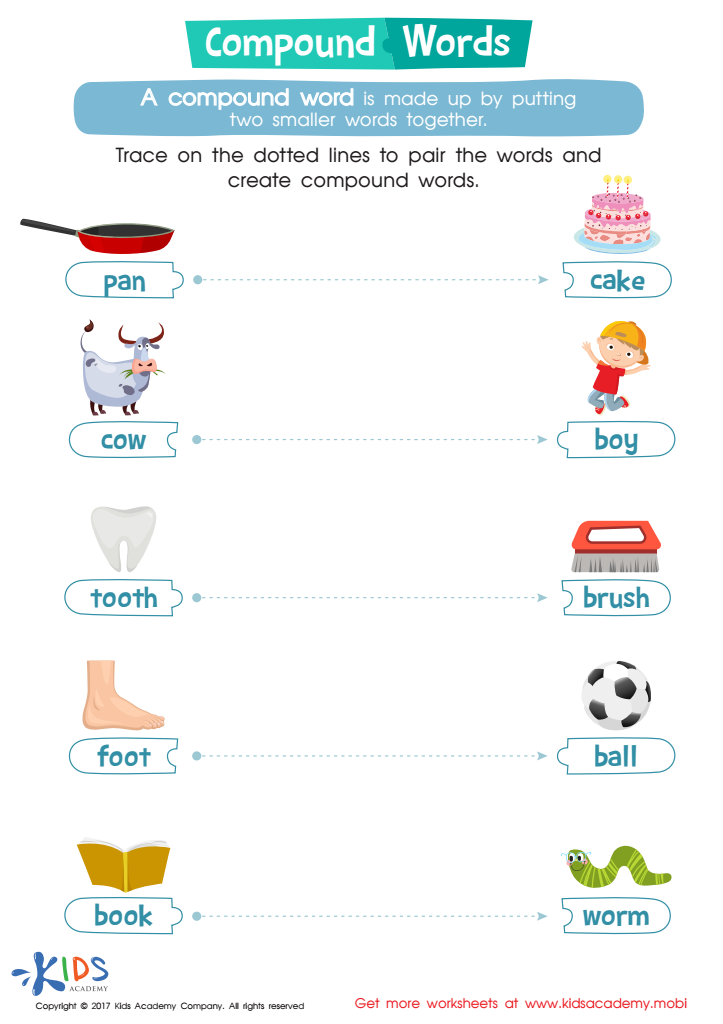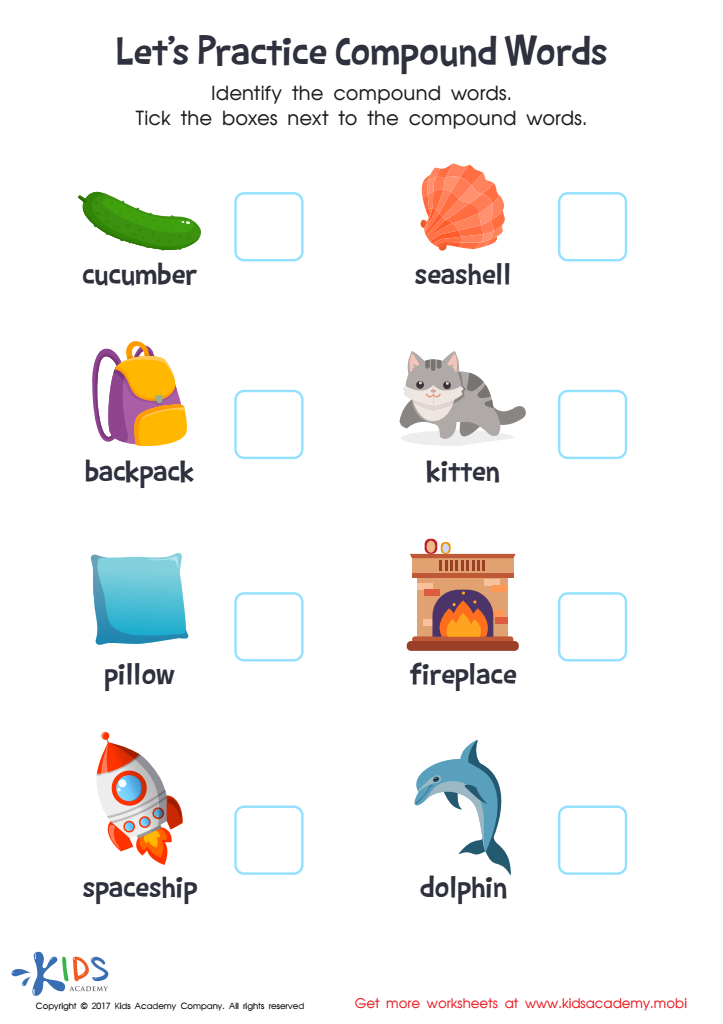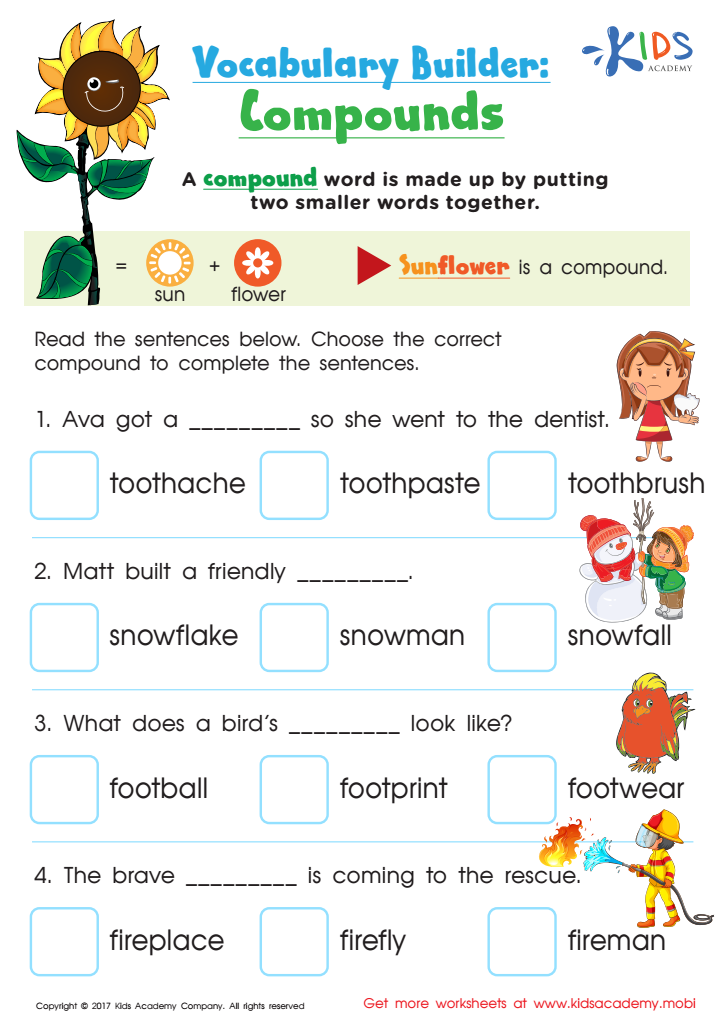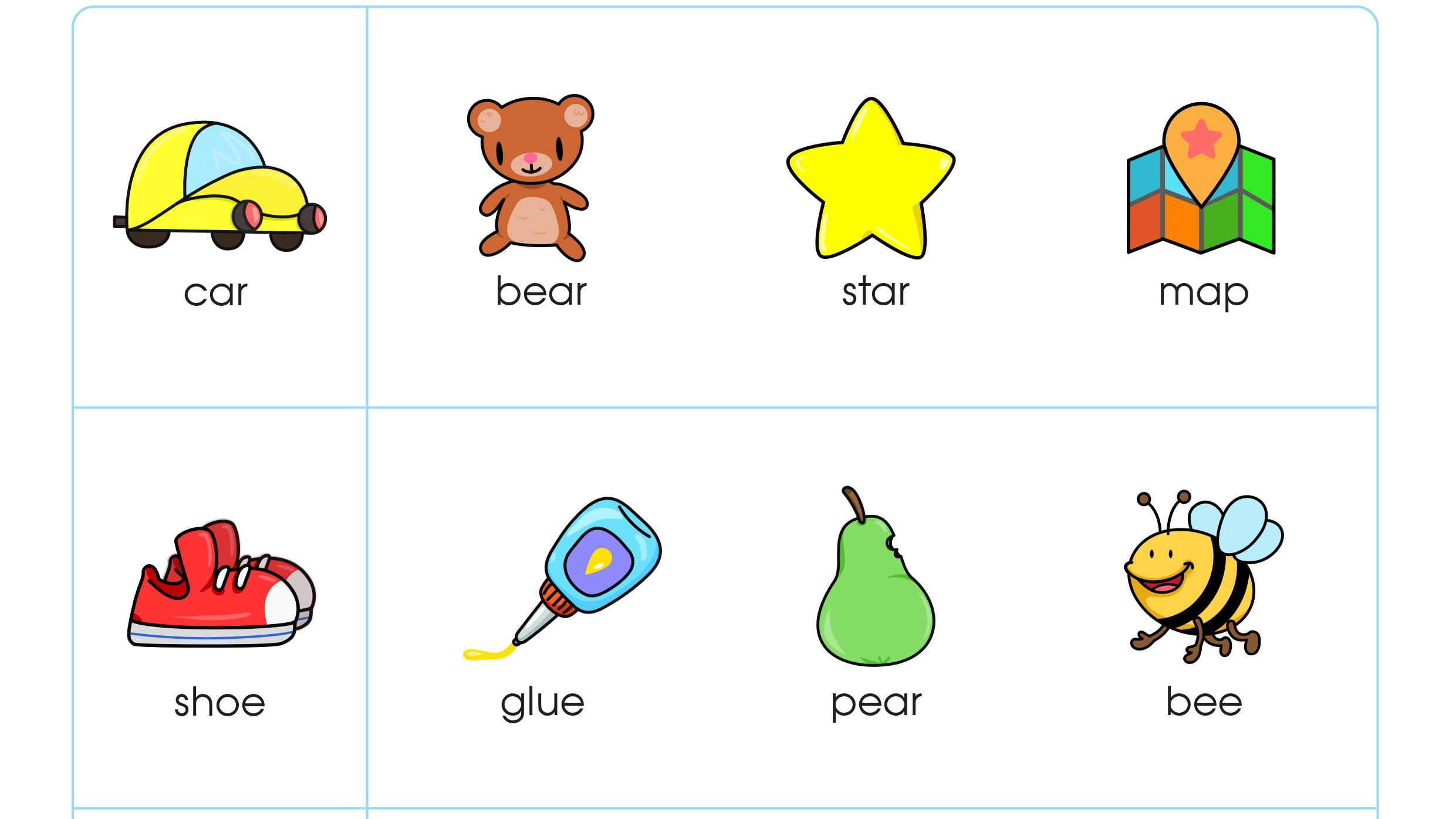Understanding compound words Worksheets for Ages 3-7
3 filtered results
-
From - To
Unlock the fun of learning with our "Understanding Compound Words Worksheets for Ages 3-7!" Tailored for young learners, these interactive worksheets help kids master the concept of compound words by splitting and combining simple words. Each worksheet is thoughtfully designed to enhance vocabulary, reading, and spelling skills through engaging activities like matching, coloring, and drawing. Perfect for preschoolers and early elementary students, these educational resources blend play with learning, ensuring a solid foundation for language development. Boost your child's confidence and creativity with our exciting, easy-to-follow compound word exercises!


Compound Words Word Structure Worksheet


Let's Practice Compound Words Word Structure Worksheet


Compound Words Worksheet
Understanding compound words is fundamental for young children, particularly those between the ages of 3-7, as it plays a crucial role in their literacy development. Compound words, which merge two simple words to form a new one (e.g., pancake, playground), help expand a child’s vocabulary and comprehension skills. For parents and teachers, encouraging this understanding leads to improved reading proficiency as children can decode unfamiliar words by breaking them down into familiar parts.
Additionally, grasping compound words enhances cognitive abilities, such as memory, pattern recognition, and problem-solving skills. These are essential for overall academic success. When children learn to recognize and create compound words, they also gain confidence in their language abilities, which fosters a positive attitude towards learning.
Moreover, this understanding contributes to better communication skills, enabling children to express themselves more precisely and creatively. It lays a strong foundation for future language arts education, making complex linguistic concepts easier to comprehend as they advance in grade levels.
In summary, parents and teachers should care about teaching compound words to young children because it nurtures essential literacy and cognitive skills, aids in communication, and builds a robust foundation for future academic achievements.
 Assign to My Students
Assign to My Students






.jpg)









